Phil Gould has revealed that he sent an urgent message to ARL Commission boss Peter V'landys regarding a potential drop in the NRL's eligibility age for Joseph Suaalii.
V'landys has said that he will consider allowing Suaalii to play for South Sydney at 17 rather than the current minimum age of 18, as the Rabbitohs fight Rugby Australia for the teen superstar's signature.
Gould told Wide World of Sports that he was in favour of the complete opposite, feeling that 21 was a more appropriate age to start a first grade career. Even Brad Fittler wasn't truly ready for first grade as a school boy, 'Gus' recalled.
"Changing the rule to suit this young boy from South Sydney because of a perceived tug-of-war between codes, or whether or not this decision to play him early is a financial thing because you've got to pay him so much money to sign him, or whether or not it's the player and the parents saying, 'I want to play NRL tomorrow' - I don't know the reason behind this request or why this statement was made," Gould said on his Six Tackles with Gus podcast.
"But I worry a little bit about the precedent it sets and what it may open itself up to.
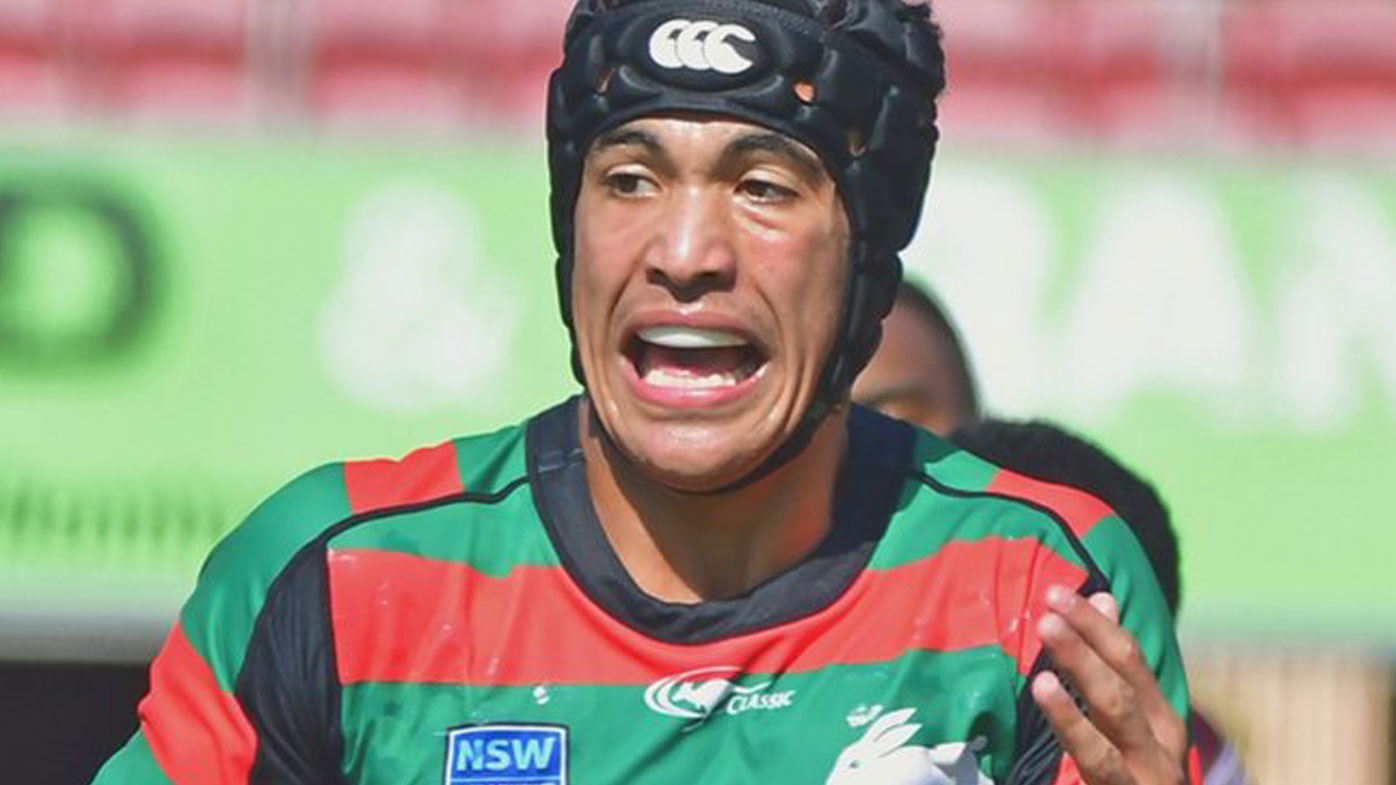
"I actually sent a message off to Peter V'landys immediately after I heard his announcement, to say, 'Look, there was a reason why we said 18. I personally think it should be 21. We need to tread carefully in this area'.
"Now, Peter will do what Peter wants to do. He'll take advice and there may be a good reason he hasn't discussed it or said anything to me about the reason why he made this announcement. He may have a very good reason and he'll make the final decision, obviously.
"But I'm not in favour, I've got to say, and the difference between 17 and 18 is only 12 months. I've seen the boy play in his age group and he's obviously physically advantaged and he's obviously genetically blessed and he's got plenty of talent, but another 12 months is not going to stop him if he's going to be an NRL player."
Gould said that he'd seen too many 'next big things' come along and fizzle out in the NRL after being promoted too early.
"We see so many kids that come in at an early age with a big boom on them and then they get the big contract and then everything kind of falls apart," Gould said.
"And they're making a comeback at 22 and 23 and telling you the lessons that they've learned, and sometimes we could have assisted that process a little better in the early days."
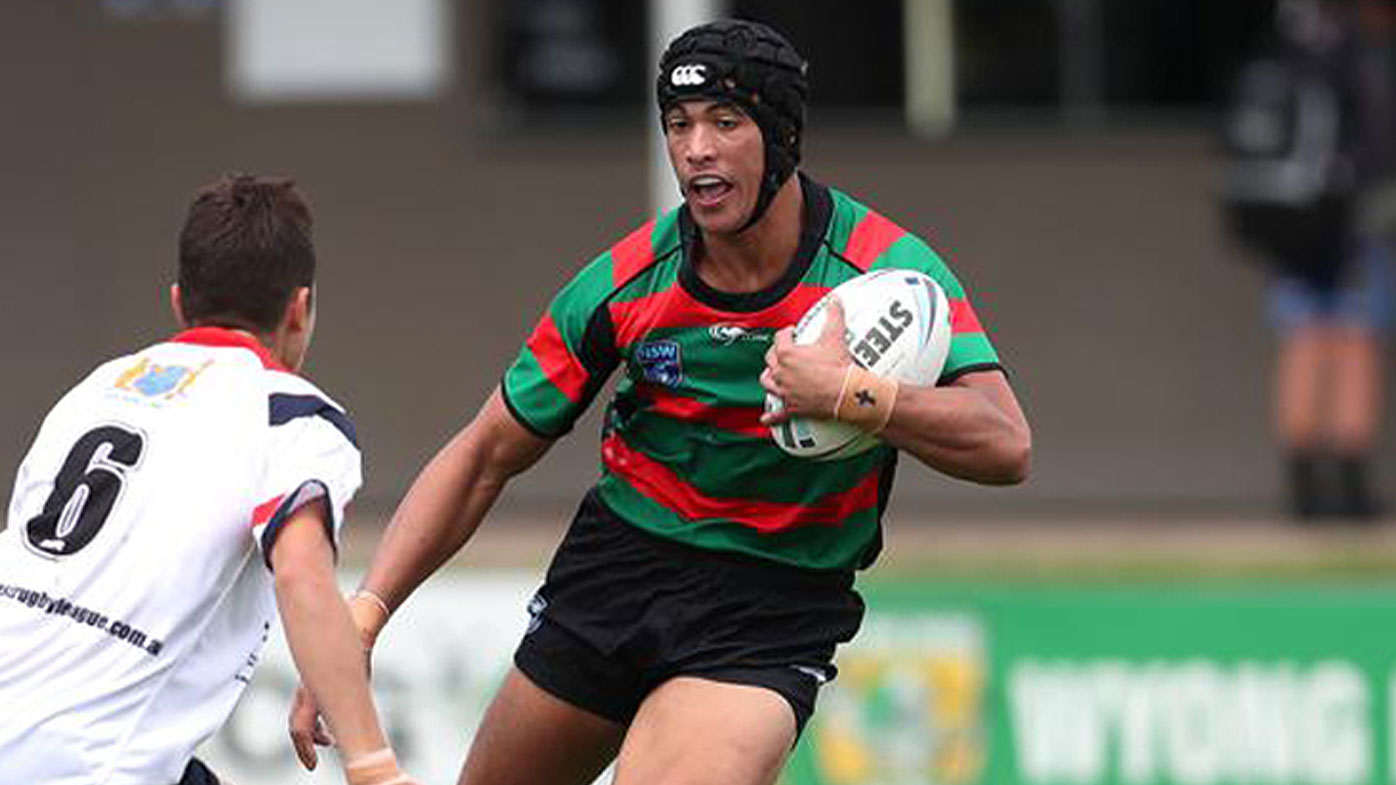
Gould said that the NRL had a responsibility to all young players, not just the elite stars, when considering the eligibility age. He said that the development phase of football was crucial in preparing players for real life, be it the pressures of the social media age or gaining an education that enabled a successful post-career transition.
He recalled that even Fittler, his freakishly-talented charge at Penrith, was not fully equipped for first grade football when Gould took over as Panthers coach in 1990.
"Players like Brad Fittler - you talk about the talent scout that says, 'I discovered Brad Fittler', well it's a bit like discovering the Blue Mountains. Someone was going to stumble upon it at some stage," Gould said.
"Brad Fittler was an elite junior talent. In age group football, he was clearly superior to his age group.
"But the real test of being an NRL player and the major part of the development process is getting to that point where you decide, 'We'll play him against men, we'll play him out of his age group and play against men'. Because that's the test and some fail that test two or three times before they feel comfortable in it.
"Some take to it like a duck to water and Brad Fittler was still in school when [then-Penrith coach] Ron Willey threw him out there into the middle of a first grade game. He immediately, with that fancy step and his ability, carved them up.
"He just looked like he was born to play it and he was. It was obvious. There's been people like Brad Fittler over the years that have been able to do that.
"But the following year, I actually went to coach the Panthers in 1990 and one of the first things I did was drop him back to reserve grade, because there were things about his training and things about his own personal make-up that I thought we just needed to slow down a little bit.
"He had sort of stormed on to the scene at the back end of 1989, coming on and playing in first grade and then playing in a semi-final at such a young age. And he could handle it because he had a step and he was quick and he had skill and it was all too new for him; there was no inhibition with him whatsoever. He had a real air of confidence about him.
"You talk to Brad now and he'll tell you he wasn't ready. But there were things that off-season I saw in his training and in his make-up and in his personality that I just sort of said, 'Whoa' and put the brakes on and sent him back to reserve grade."
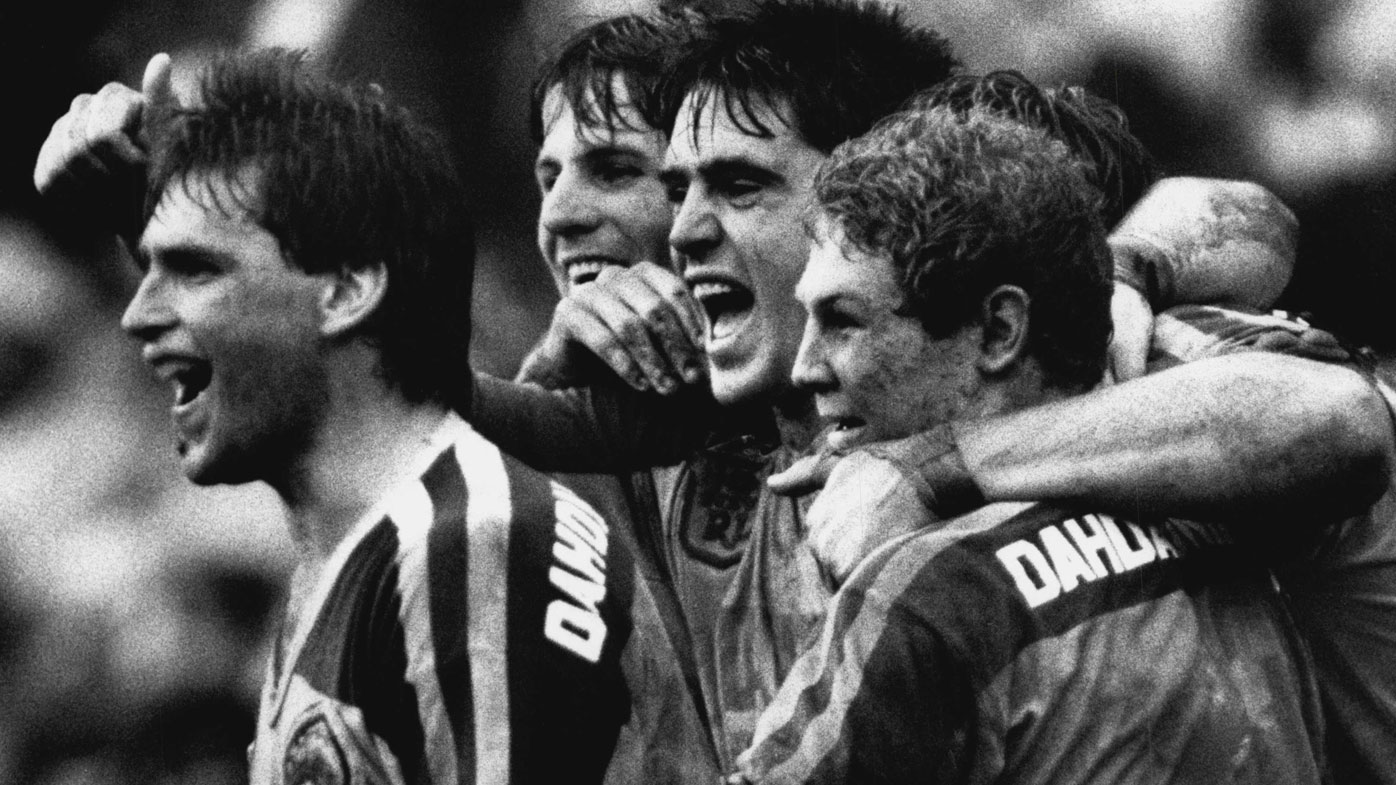
It was a process that began painfully but proved invaluable for 'Freddy', who was part of Penrith's grand final team later that year and their first premiership side the following season.
"He went back to reserve grade and his first few reserve grade games were really poor. He struggled. He probably was [dirty on me]. He never said so," Gould said.
"But he went back into that grade - and reserve grade in that day was pretty strong, there were a lot of current first graders and ex-first graders still going around in that grade and they liked to sort the young fellas out a little bit - I wanted to get him back to that grade and just let him know that there was still a long way to go in his career if he wanted to be a professional footballer.
"He went back and he actually struggled for a few weeks and then slowly he got his head around the fact, 'All right, well I've got to prove myself all over again'. No one had ever questioned him before, he was too good for everyone he'd ever played against.
"Now he was playing in reserve grade and blokes were beating him up and running over the top of him and they weren't falling for his left-foot step and his big dummy, so he thought, 'Gee whiz, I've still got work to do'.
"I've never spoken to him about it to be honest but I feel it was really, really important. I think that reserve grade football, that second-tier football, is important in the development process, even for one as great as Brad Fittler and how he turned out."
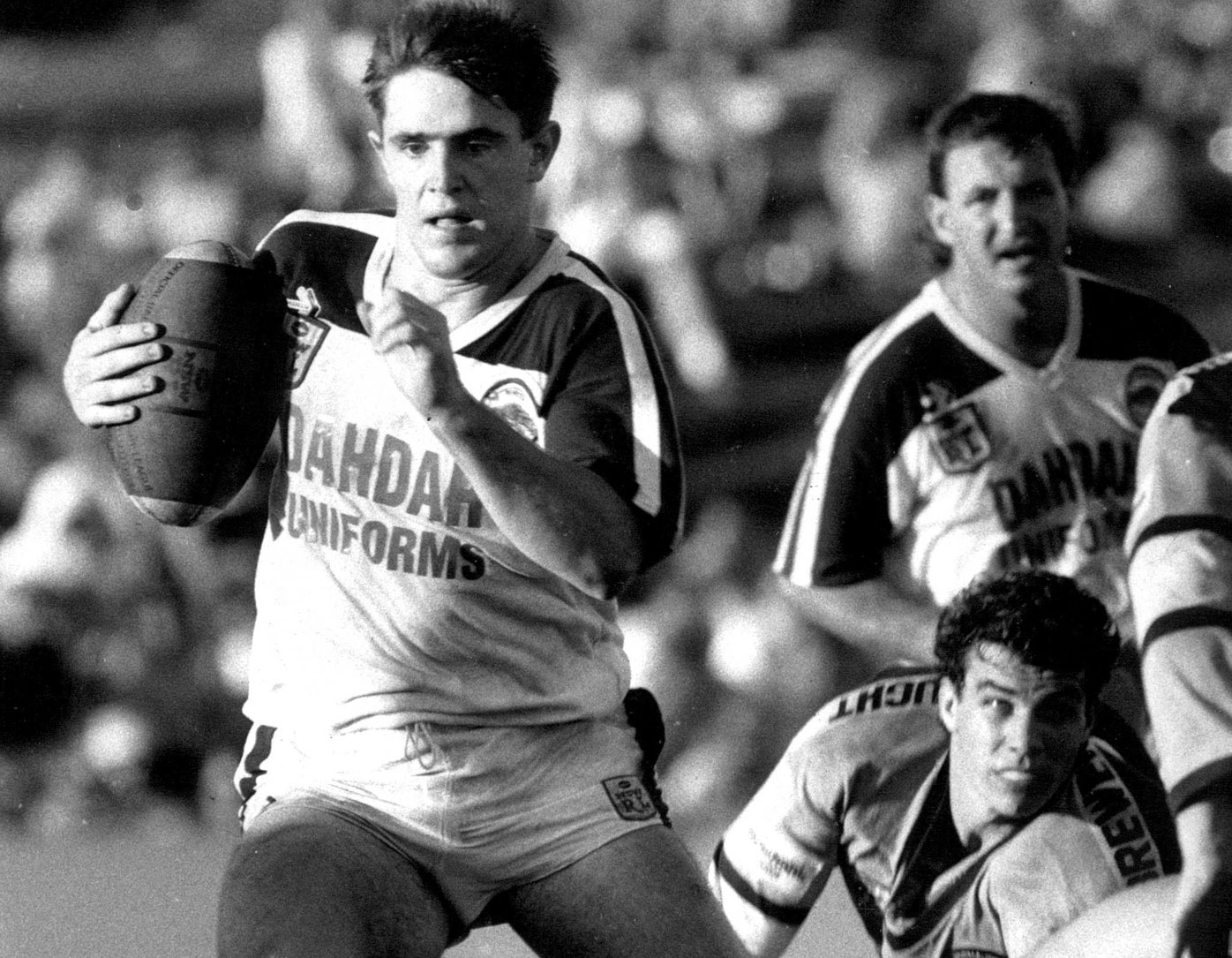
Gould said that Fittler's stint in reserve grade had instilled good habits. His game got sharper, he started coming to training early, then began doing extras.
"Then I remember we were sitting in the back of the Panthers grandstand there and he'd just scored his fourth try for the afternoon and I said, 'Well, I think it's time we can bring him back up now'," Gould recalled.
"He never went back after that but I just felt that was an important little thing, so I actually held him up for six weeks, one a great as Brad Fittler. I think it was a good lesson for him.
"We had a few little speed bumps along the way from that point, too, but everything turned out all right.
"People tend to look at the Greg Inglis, Jarryd Hayne, Brad Fittler, Greg Alexander, Darren Lockyer-type player and say, 'Well if you're good enough, you're old enough', but for 99 per cent of us, we're pretty average and it's the 99 per cent we've got to look after.
"And even for the elite players, it would not have hurt them if we'd held them back another year or two, provided that we had an elite youth competition that they could play in, one with great profile and one where they could be tested against the best of the youth around.
"They'll stand out in that, they'll be probably too good for that level, but that doesn't mean they should be moved on and promoted straight away. I've always been a strong believer in this and it's an opinion that's been built over many, many years."
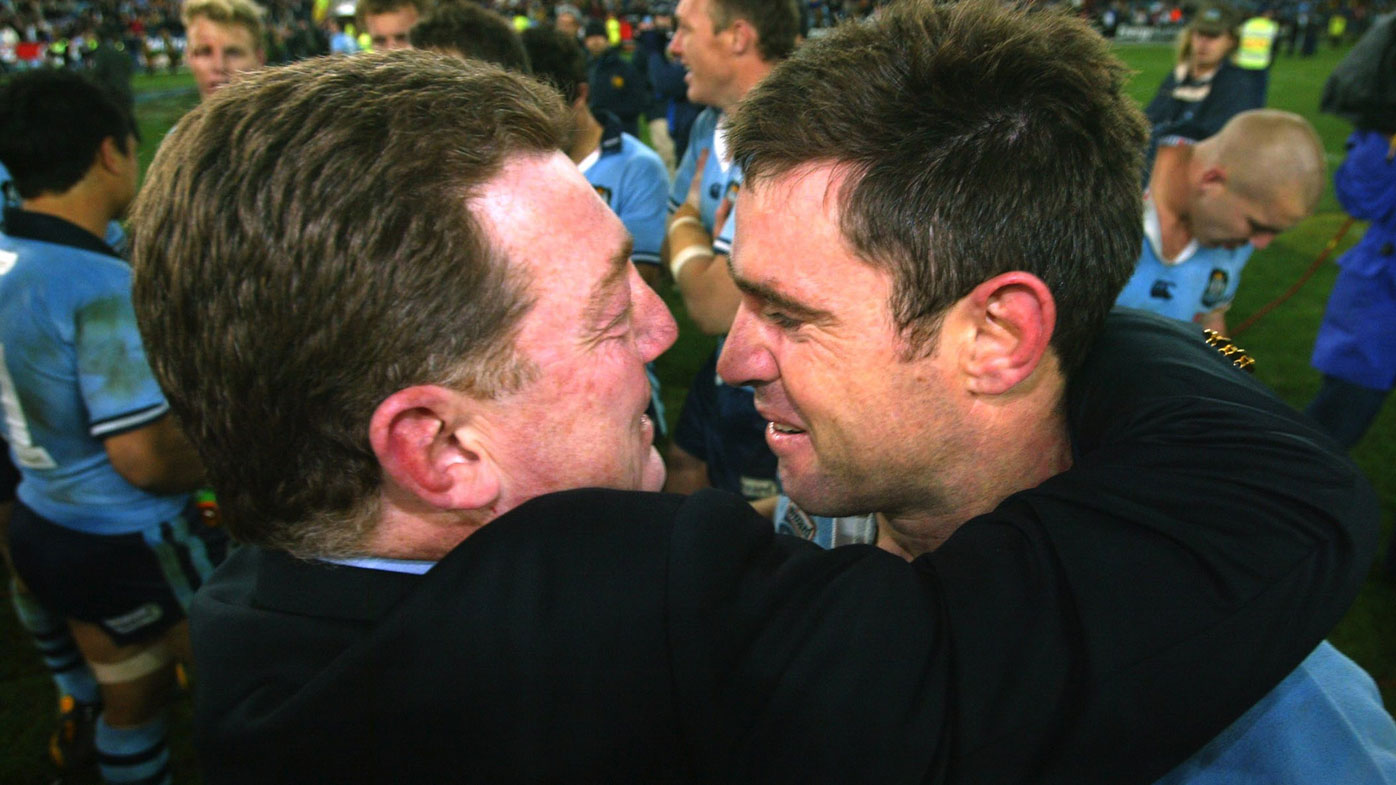
Gould made his first grade debut at age 18, for Penrith in 1976, and two years later became the Panthers' youngest-ever captain at just 20.
"There are a number of reasons why we have tried to raise the age about playing in the NRL," Gould said.
"I have written regularly over the decades that I think the age should be 21. I don't think we should play players in the NRL until they've [turned] 21, which gives them a great opportunity to develop physically and mentally in an elite junior competition, but also get their education sorted and give themselves the foundations for a future without rugby league, if that's the way their life goes, or a future beyond rugby league if they do have a rugby league career. It also gives us time to develop the person as well as the athlete.
"Athletically, some kids are able to play or handle a game or two in first grade at 17 years of age. For those of us that played at that age in first grade, we thought we were ready, we gave our best but when you look back on it, we were nowhere near ready. We really weren't.
"The other part of this, too, is that we were trying to lower the expectations. The competition was becoming very fierce amongst player managers and clubs for securing young talent way too early.
"That would get hopes and aspirations of players sort of out of kilter; young people being promised a future that was probably unrealistic, to be honest."
Gould said that in his recent stint at Penrith's general manager, he had made it his policy to be brutally honest with young players about their chances of reaching the NRL.
He said that by insisting on education and training outside the game, some of Penrith's greatest successes were young men who never set foot on an NRL field.
from WWOS https://wwos.nine.com.au/nrl/joseph-suaalii-age-restriction-phil-gould-brad-fittler/50fdabc8-0590-4982-aa70-531fa5c2f7c1


0 Comments